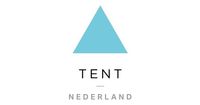In a significant move to address the challenges faced by asylum seekers and refugees in the Netherlands, the Tent Partnership for Refugees (Tent) has officially launched Tent Nederland on April 7, 2025. This new initiative is a national coalition comprising over 40 leading companies, including well-known names like IKEA, Marriott International, Philips, and Vebego, all committed to facilitating the integration of refugees into the Dutch labor market.
The launch event, held in Amsterdam, highlighted the urgent need for enhanced labor participation among refugees, as current statistics reveal a stark contrast between the employment rates of refugees and the general population. In the Netherlands, there are more than 290,000 refugees, of whom 118,000 are from Ukraine, alongside 132,000 status holders and 40,000 asylum seekers from countries such as Syria, Afghanistan, Iran, Iraq, and Eritrea. Despite having the right to work, only 12% of all status holders find employment within two years, a figure that rises to 46% after six years. In comparison, around 55% of Ukrainian refugees secure jobs within two years due to immediate access to work permits.
These figures starkly contrast with the net labor participation rate in the Netherlands, which stands at 73%. The disparity underscores the pressing need for initiatives like Tent Nederland, especially given the over 400,000 open vacancies in sectors like hospitality and healthcare.
Hélène van Melle, director of Tent Nederland, emphasized the coalition's commitment to removing barriers that hinder refugee employment, such as language barriers, limited networks, and gaps in work history. "There are now more open vacancies than unemployed individuals in the Netherlands, and that gap is expected to widen. Hiring refugees presents a win-win-win situation: it addresses labor shortages, allows refugees to rebuild their lives, and enables them to contribute to society," she stated.
In addition to connecting refugees with employers at all levels of experience, Tent Nederland offers companies tools, training for HR teams, insights from Tent's international network, tailored programs for the Dutch market, workshops, and introductions to local partners who can match refugee talents with job vacancies.
Notably, companies like Philips have already seen the benefits of integrating refugees into their workforce. Monique Bijl, Global Workforce Strategy & Talent Acquisition Business Partner at Philips, noted, "Since joining the Tent Partnership for Refugees, we have employed status holders at all levels, both in the Netherlands and abroad. We look forward to collaborating within the coalition to learn from each other and provide refugees with opportunities to thrive."
Similarly, Ineke Jeuster, Chief People Officer at McDonald's Netherlands, highlighted the importance of equitable opportunities for all job seekers, stating, "Everyone deserves the chance to work and grow, including job-seeking refugees. We are proud to join Tent Nederland and enhance our efforts to help them find employment, thus building strong teams in our restaurants while providing individuals with a fresh start and a welcoming environment."
As the coalition grows, it is clear that the more than 40 participating companies span various sectors, including 180 Amsterdam, ABN AMRO, Adecco Group, AkzoNobel, Arcadis, and many others. The launch of Tent Nederland marks a pivotal moment in the ongoing efforts of the Tent Partnership for Refugees, which has been collaborating with businesses across the Netherlands since 2018, following the successful Dutch Business Summits in 2019 and 2022 that helped thousands of refugees secure employment.
As the Netherlands continues to welcome large numbers of refugees, the role of the business community in facilitating their economic integration becomes increasingly crucial. Tent Nederland aims to mobilize the support of major employers to provide refugees with access to local labor markets, thereby fostering a more inclusive and resilient society.
In a related development regarding asylum seekers, recent changes in Dutch immigration policy have also come to light. Asylum seekers who are refused by the Immigration and Naturalization Service (IND) due to having arrived in another European country can remain in the Netherlands if they are not returned within 1.5 years. This policy is rooted in the Dublin Regulation, which states that the country where a foreigner first enters Europe is responsible for processing their asylum request.
Mohammad, an Iranian political refugee, recently had his asylum procedure acknowledged by the IND after almost two years in the Netherlands. He expressed relief, having been previously detained by Croatian authorities before arriving in the Netherlands. "I didn't want to go back to Croatia. I have family here and need medical support that I can't get there," he explained.
The Dublin Regulation, implemented in 2003, aims to prevent asylum seekers from traveling between EU member states to submit multiple applications. However, only 1 in 6 Dublin claims made by the Netherlands in the past five years has resulted in the transfer of an asylum seeker to another country. This low success rate highlights the inconsistencies in cooperation between member states, with some countries, like Germany, being more responsive than others, such as Italy, which has not accepted any asylum seekers from the Netherlands despite thousands of requests.
Asylum seekers can take advantage of a provision in the Dublin Regulation that allows them to start a new asylum procedure if they have not been transferred to the responsible member state after 18 months. This is a crucial lifeline for many, as it allows them to secure a more stable future in the Netherlands.
With the upcoming implementation of the EU Asylum and Migration Pact in 2026, which will extend the Dublin claim period to three years, concerns have been raised about the potential for asylum seekers to live in limbo for even longer. Amsterdam's municipality is already preparing to support this vulnerable group, as many organizations are stepping up to help those who might otherwise end up homeless.
Asylum attorney Sonya Taheri noted that many asylum seekers are aware of the system and often go into hiding to avoid deportation. "They build networks and find ways to survive while they await resolution of their status," she explained. This reality reflects the complexities of the asylum process and the challenges faced by both refugees and the organizations that support them.
In summary, the launch of Tent Nederland and the evolving immigration policies in the Netherlands highlight the urgent need for collaborative efforts to support refugees and asylum seekers. As businesses and communities come together to address these challenges, the hope is that a more inclusive and supportive environment will emerge for those seeking safety and a new beginning in the Netherlands.





